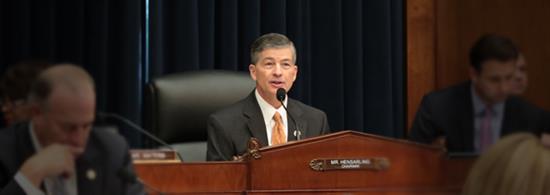Hensarling Applauds Passage of NDAA with Critical Foreign Investment Reforms
Washington,
July 26, 2018
House Financial Services Committee Chairman Jeb Hensarling (R-TX) issued the following statement upon passage of the conference report to the “John S. McCain National Defense Authorization Act (H.R. 5515).” Hensarling was a House conferee with jurisdiction over the Foreign Investment Risk Review Modernization Act (FIRRMA), which reforms the Committee on Foreign Investment in the United States (CFIUS). “By focusing on businesses that own, operate, or provide critical infrastructure, targeting specific information or influence that could be transferred, and limiting new jurisdiction to certain categories of investors connected with problematic countries, this agreement ensures the reforms to CFIUS are narrowly focused on national security while keeping America’s doors open to investment—and I was proud to support it. “I want to thank House Armed Services Committee Chairman Mac Thornberry (R-TX) for his leadership and willingness to work with the Financial Services Committee on a number of provisions where we had shared jurisdiction. I also want to thank the author of the House’s CFIUS bill, Congressman Robert Pittenger (R-NC), who has been a tireless advocate for reform, and my fellow conferees from the Financial Services Committee – Ranking Member Maxine Waters (D-CA) and Monetary Policy and Trade Subcommittee Chairman Andy Barr (R-KY) – for their hard work to ensure that the will of the House was reflected in the conference report.” The provisions in the final CFIUS agreement taken from the House bill include:
|


